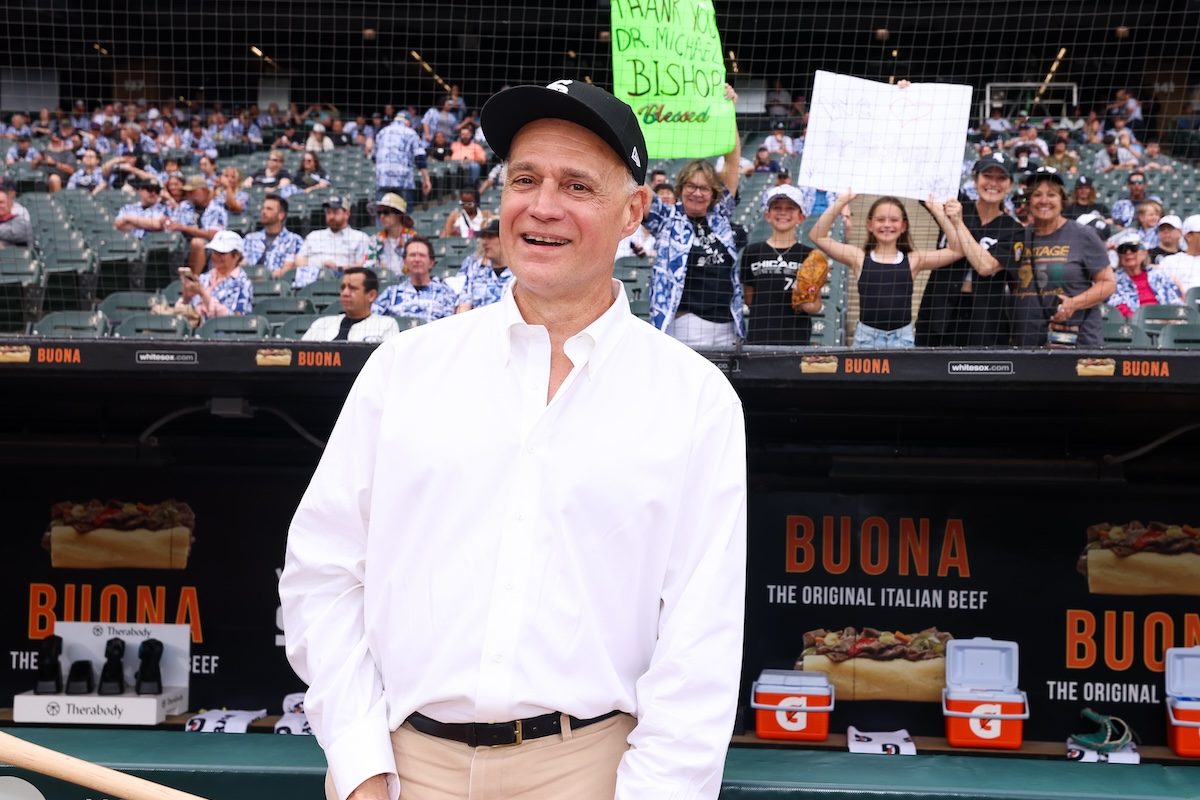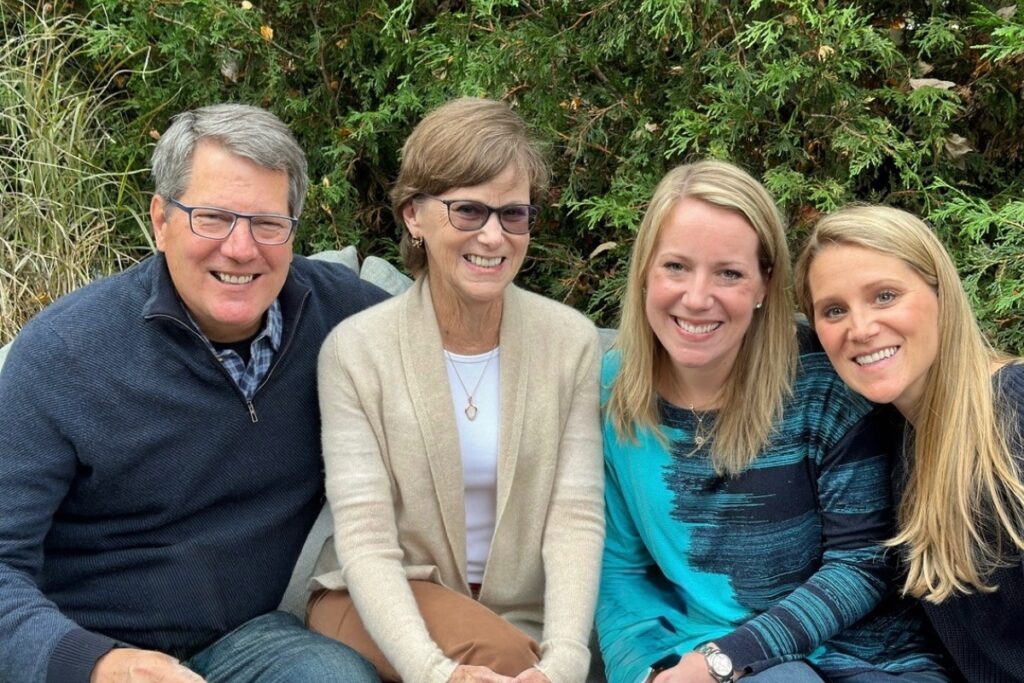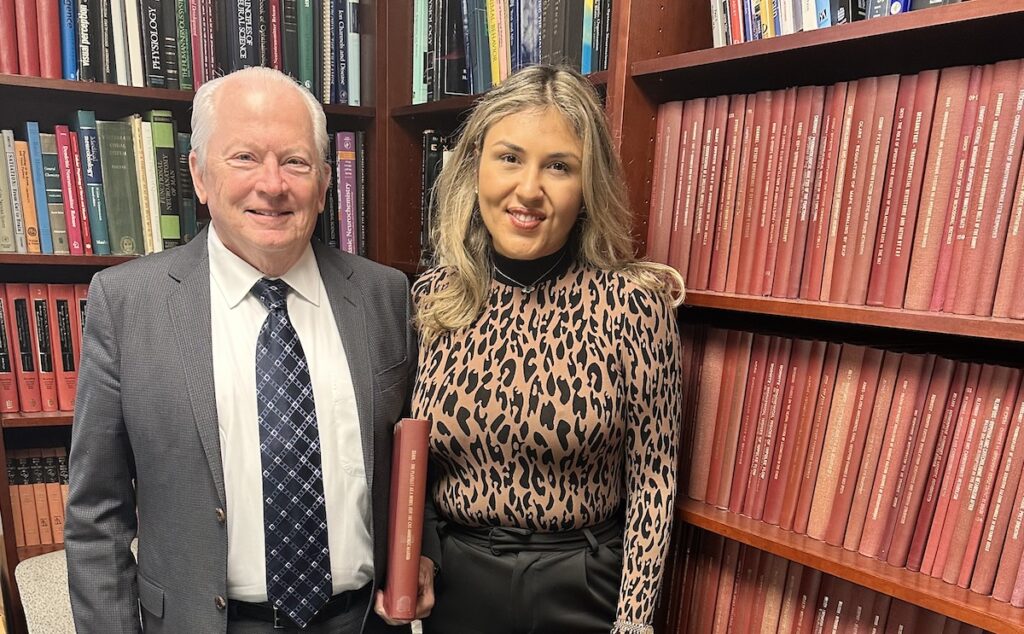Chicago White Sox Charities announced $3.5 million in grants supporting five national and local programs that address pancreatic cancer patients, research, and treatment at a White Sox game on June 8, 2024. Included among these is a $500,000 grant awarded to the University of Chicago Medicine in support the work of Michael Bishop, MD, a leader in developing CAR T-cell therapy.
The donations were made possible through the generous bequest of Nina Nicolai, who left a lasting legacy of support for patients battling late-stage cancer diagnoses. The gift was inspired in part by the story of the Wulfstat family’s endowment for pancreatic cancer research at UChicago Medicine, and builds on a local community of donors fueling ongoing studies.
CAR T-cell therapy has been described as giving patients a “living drug.” This cellular therapy uses re-engineered versions of a patient’s cells to find mutated cancer cells and defeat them. T cells are a type of white blood cell that help the immune system fight infection and protect the body against disease. For this therapy, scientists identify mutations that will result in antigens—cell surface structures that the immune system can recognize—that are not found on any of the patient’s healthy cells. Confronted with a new antigen, the immune system will rapidly create novel T cells with appropriately matching receptors, in effect, providing a kind of vaccine against the cancer.
This type of treatment proved successful against certain types of blood cancers. Now UChicago Medicine is working on CART T-cell therapies to treat solid tumors, such as those in pancreatic cancer. Physicians hope to be able to vaccinate a patient, let the body create T cells with the right receptors for their cancer antigens, and then collect these T cells to use as the basis for a personalized cellular therapy.
A high standard of patient care is just as important in cancer treatment as the development of novel therapies. When Bishop accepted the award, he was cheered on by some of his patients, who sought care at UChicago Medicine because of its reputation for providing comprehensive care. “When you come to UChicago Medicine, you’re getting an entire team of people who are looking at you from every different perspective. And really, I think that’s what distinguishes us from most institutions in the United States,” said Bishop.
Bishop is renowned both for his research and the rapport he develops with his patients, including Jeremy Carnahan, who attended the White Sox game and award ceremony with his wife, Kerri, and daughter, Kaylee, who is also a patient of Bishop’s. “I was introduced to Dr. Bishop through a local oncologist who worked under him early in her career. I started treatment in 2018. Once Kaylee was diagnosed, we introduced her,” said Jeremy. “There was a drastic difference in care between going to other providers and going to UChicago Medicine—it was just so stark. It made perfect sense for us to take our daughter there.”
“A lot of doctors can make you feel more like a customer and less like a patient,” added Kaylee. “He cares more about your quality of life. It makes it hard to trust anyone else with my medical care after having been so well taken care of by UChicago.”
Cellular therapies, including CAR T-cell therapy, offer new options for cancer treatment beyond surgery, chemotherapy, and radiation, which are hard on patients. Not only is CAR T-cell therapy potentially effective when other treatments aren’t, but unlike chemotherapy and radiation, which kill healthy cells as well as cancerous ones, it can target tumors more precisely. Patients often report that side effects from CAR T-cell therapy are easier to tolerate than the side effects of chemotherapy or radiation. In fact, UChicago Medicine patients receive these treatments on an outpatient basis, allowing them to return to the comfort of their home between treatments and appointments.
Philanthropic gifts can accelerate research and lessen the time it takes to make new treatments widely available.
“Amen,” added Jeremy. “At this point I feel like science should pay me because the treatments themselves can do a lot of harm. My hope for this research is that not only will it continue to improve and heal and help people, but that it will truly help and heal people in the long term, not just attacking the disease and bombing the system to clear the disease.”




